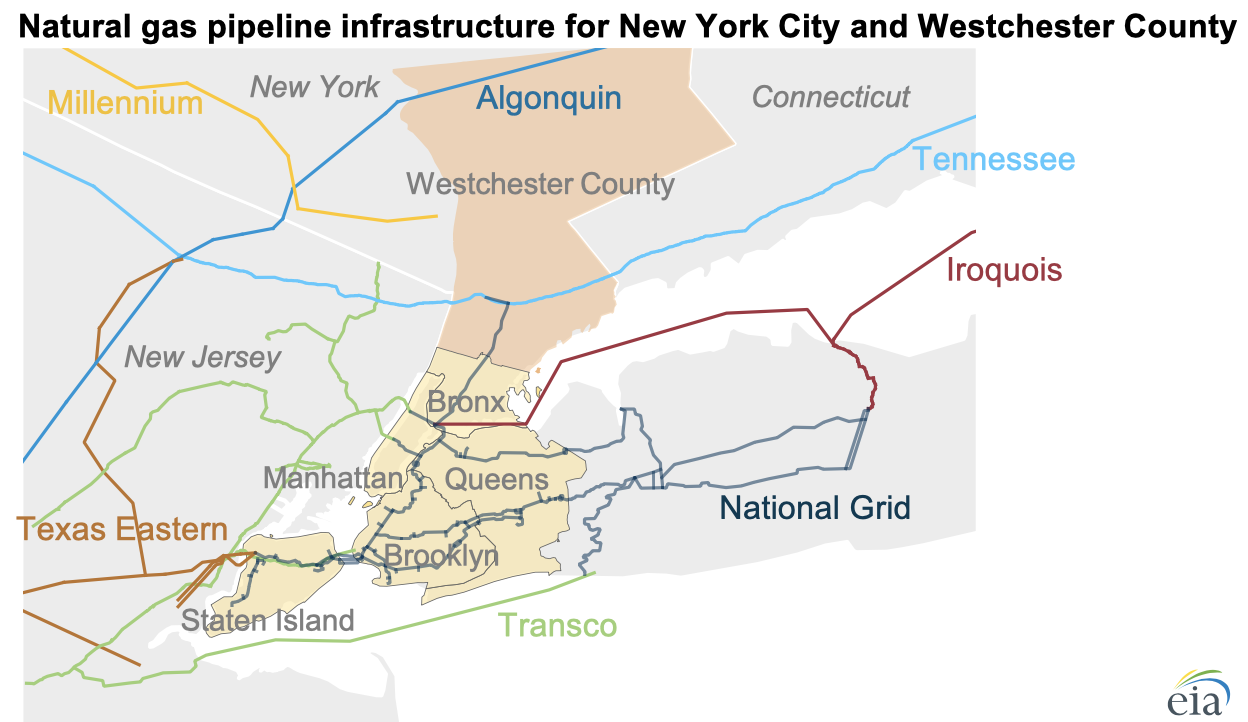In January 2019, Consolidated Edison, Inc., (Con Edison)—the largest utility provider in the New York City area, serving 10 million customers—announced a moratorium on new natural gas connections in most of Westchester County, effective March 16. Demand for natural gas in the New York City area has increased in recent years, leading to concerns about reliability of service. Con Edison claimed it cannot guarantee uninterrupted service to new natural gas connections. Between the announcement of the moratorium and its start on March 16, Con Edison received 1,600 applications for firm natural gas service in the moratorium area. Customers on firm natural gas service contracts have delivery priority above those on interruptible contracts.

Despite an increase in natural gas production in the Northeast, regional demand for natural gas—driven both by population growth and switching from heating oil—has grown even faster, causing concern about the ability to provide service to new customers. During recent winters, natural gas utilities in the Northeast have been using most, if not all, available pipeline capacity to transport natural gas to demand centers.
Over the last two months, Con Edison announced two agreements with existing pipeline companies to add capacity by upgrading compression facilities. Instead of constructing new pipelines, these projects would provide incremental capacity increases to alleviate constraints. In April 2019, Con Edison reached an agreement with Kinder Morgan’s Tennessee Gas Pipeline to bring additional capacity into Westchester County.
In May 2019, Con Edison announced a second agreement, with Iroquois Gas Transmission System, L.P., to provide incremental natural gas capacity to the Bronx and parts of Manhattan and Queens through the Iroquois pipeline. According to Con Edison, both projects could enter service by November 2023.
Natural gas moratoriums are infrequent, but utility companies in Massachusetts recently issued similar moratoriums even though the state is close to natural gas production from the Appalachian Basin. Although smaller in scale and in areas with less commercial demand, three Massachusetts utility companies issued moratoriums on new natural gas hookups this past winter because of supply constraints.
Principal contributor: Kristen Tsai










